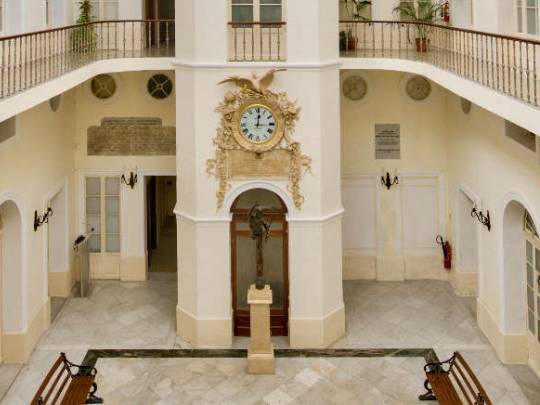The implementation of Budget 2020 measures should go ahead as planned, according to the private sector and employers’ associations, though the Government’s main priority should be restoring Malta’s reputation.
In comments to The Malta Business Observer, the Malta Chamber of Commerce, Enterprise and Industry said that, in view of recent events, Budget 2020 “seems like history now”, but Joe Farrugia, Director-General of the Malta Employers’ Association (MEA), said he believes there should be a sense of continuity, with the Budget measures implemented despite the recent Cabinet changes.
Recent events refer to the ongoing shocking headlines coming from court implicating those close to former Prime Minister Joseph Muscat, in particular his former chief of staff Keith Schembri, with the brutal murder of Daphne Caruana Galizia.
Further to the political crisis, de-risking measures imposed on Malta’s largest banks is a major cause for concern within the business community.

Malta Chamber of Commerce, Enterprise and Industry
The Malta Chamber of SMEs, previously known as GRTU, also insisted the Government must stick to its Budget commitments. Some measures, like those affecting social services, pensions and labour, have already started being implemented.
On the labour front, the cost of living adjustment; the 15 per cent flat tax rate on the first 100 hours of overtime for workers earning up to €20,000; as well as the extra day of leave have also all come into effect this month. Commenting on these Budget measures affecting industry, Mr Farrugia, from the MEA, remarked that the cost of living adjustment mechanism is something employers have had to contend with for decades: a wage mechanism partly linked to inflation, not productivity.
“However, the shortages in labour during the past few years have resulted in wage increases well above the cost of living adjustment increase and, today, many collective agreements, including the one prevailing in the public sector, also include the cost of living adjustment as part of the agreed wage increases,” he noted. Employers also strongly oppose the addition of an extra day of leave.
To Mr Farrugia it is “certainly inflationary” and will have a negative impact on output and productivity.
On the other hand, employers do not consider the 15 per cent tax on overtime as a cost increasing measure in itself, but Mr Farrugia warned it can cause problems in its implementation.
But, more than the Budget 2020 measures, employers feel the main priority should be to restore Malta’s reputation, the MEA Director-General underlined, saying that the recent political turmoil was not about Budget measures “but, rather, due to the progressive erosion of governance and the rule of law over the past years, which has severely damaged Malta’s reputation abroad and also affected consumer and business decision making locally.”

Parliament facade, Valletta
Action must be taken here, he stressed. “The Government must act decisively to reverse the deterioration of Malta’s image. In the medium term, the Government must also ensure that the fiscal balance remains positive in view of an economic slowdown of our major economic partners, the impact of Brexit, and rising recurrent expenditure,” Mr Farrugia insisted.
Moreover, in the running of the economy, there should be a stronger emphasis on sustainability, and the generation of wealth through higher-value-added activities through strategic planning rather than expanding in all directions simultaneously, he remarked. Reflecting this tone, Abigail Mamo, the Chief Executive Officer of the Malta Chamber of SMEs, also argued that the Government has an obligation to deliver on the Budget 2020 commitments.
This is an extract of an article which initially appeared in the January edition of The Malta Business Observer.
Main Image:Finance Minister Edward Scicluna entering Parliament holding the Budget document
